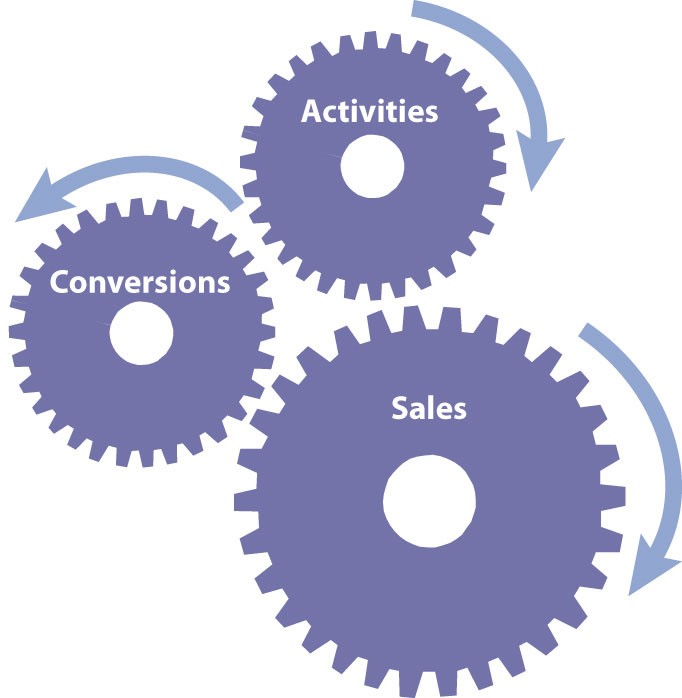1. Debrief Salespeople Weekly
The sales manager should have a standing meeting with each salesperson each week. It should be on the calendar and be considered inviolate except in unusual circumstances. The purpose of the meeting to hold the salesperson accountable and to provide an opportunity for targeted coaching to help the salesperson grow. In my experience fewer than 25% of sales managers do this on a regular basis. Request the free reports by clicking the green button below and learn the 5 major self-limiting beliefs that salespeople have which limit their effectiveness.
2. Work to Eliminate Self-Limiting Beliefs of the salespeople
Sales managers must identify and work to change or eliminate the self-limiting beliefs of their salespeople. Success of a salesperson has more to do with their belief systems than with any other single factor. Everyone has firmly held convictions about the way things are, or at least should be.  Only 26% of salespeople have the belief systems strong enough to be successful in today’s selling environment. Fewer than 5% of sales managers are even aware of the existence of self-limiting beliefs. Even fewer spend any time working on eliminating or changing them. This fact places a severe limit on the sales manager’s ability to grow the sales team.
Only 26% of salespeople have the belief systems strong enough to be successful in today’s selling environment. Fewer than 5% of sales managers are even aware of the existence of self-limiting beliefs. Even fewer spend any time working on eliminating or changing them. This fact places a severe limit on the sales manager’s ability to grow the sales team.
3. Manage the Pipeline Correctly
The two most prominent methods sales managers use to forecast future sales are the quasi-scientific expected value method (using estimated projected closing percentages) and the totally unscientific ‘gut feel” method. In most cases, neither is very accurate. Managing the pipeline and reporting it accurately may be the part of the sales manager’s job description which most drives a CEO to distraction.

CEO’s need accuracy in the sales forecasts to effectively plan inventory, personnel requirements, and a variety of other parts of the business. Yet sales managers continue to deliver inaccurate forecasts or no forecasts at all. Click the Green button below and order the detailed report to learn more about how to make forecasting more accurate.
4.Let Salespeople Fail
You learn more from mistakes than from your successes. Yet sales managers make the mistake of never letting a salesperson fail. They rescue them by attending all of the important sales calls. They act as the “super closer” on big deals. If you never take the training wheels off, you never learn to ride a two wheeled bike. Sales

managers typically are reluctant to let the salespeople fail even on little sales. Hence, they are ineffective at managing the salesperson through the growth process to get them to the next level. Learning from small failures and applying the lessons learned is how we all grow. Avoiding small failures is also avoiding the lessons learned which will be needed on larger deals.
5. Track Sales Activity
Sales managers generally have sales goals (quotas) assigned to each person but they rarely set goals for how much sales activity must be done to reach those goals. Sometimes they have a standard for activity such as 2 face-to-face appointments per day. But, even in that case, the standard has little to do with the goal or with the skill level of the salesperson.

Only about 1 in 20 sales managers have set activity goals for their people that are related to the goals they are committed to reach. And fewer than half of those (maybe 2%) actually track the sales activity on a day to day basis. Remember that “what gets measured gets done”. If you don’t hold salespeople accountable to the activity then there is a good chance it won’t get done, sales targets will be missed and growth of both the individual and the company will be stunted. Get the free Sales management Report below for more details on what and how to track activity.








